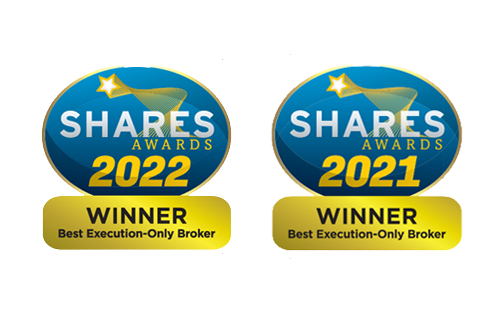
Investment accounts
Adult accounts
Child accounts
Choosing Fidelity
Choosing Fidelity
Why invest with us Current offers Fees and charges Open an account Transfer investments
Financial advice & support
Fidelity’s Services
Fidelity’s Services
Financial advice Retirement Wealth Management Investor Centre (London) Bereavement
Guidance and tools
Guidance and tools
Choosing investments Choosing accounts ISA calculator Retirement calculators
Share dealing
Choose your shares
Tools and information
Tools and information
Share prices and markets Chart and compare shares Stock market news Shareholder perks IPOs and placings
Pensions & retirement
Pensions, tax & tools
Saving for retirement
Approaching / In retirement
Approaching / In retirement
Speak to a specialist Creating a retirement plan Taking tax-free cash Pension drawdown Annuities Investing in retirement Investment Pathways
In this section

How investment trusts work
Important information - please keep in mind that the value of investments can go down as well as up, so you may get back less than you invest. This information is not a personal recommendation for any particular investment. If you are unsure about the suitability of an investment you should speak to one of Fidelity’s advisers or an authorised financial adviser of your choice.

What is an investment trust?
Investment trusts have been around for a lot longer than other types of investment funds—over 150 years—and are like them in many ways. Your money is pooled with contributions from many other people and used to buy a portfolio of investments.
They’re chosen and managed by an expert team, who are in charge of the day-to-day running of the trust, deciding when to buy and sell investments. Your investment may rise in value although there is no guarantee and you may get back less than your original investment.
Additionally, pooling your money with other investors' contributions means you get access to a much wider range of investments. This diversified portfolio, potentially across hundreds of companies, limits reliance on the fortunes of just one or two businesses.
How they work
Investment trusts are Public Limited Companies (PLCs) that are listed on a stock exchange, so investors buy and sell from the market. They come with their own independent board of directors, and you become a shareholder when you invest in a trust.
As investment trust shares are listed on the London Stock Exchange, their prices are affected by supply and demand. This means that share prices may be higher or lower than the Net Asset Value (NAV). The NAV is the value per share of all the assets owned by the investment trust.

Limited shares
An investment trust has a fixed number of shares (closed-ended) so managers can buy/sell when the time’s right, not because investors join or leave.
Traded on an exchange
The price of an investment trust is determined by the market, not its NAV.
Borrowing powers
Investment trusts can borrow and use gearing to take advantage of opportunities. Interest must be paid whether the trust profits from the loan or not.
Income
Investment trusts can retain up to 15% of their income in any year. This can provide extra income in the future and help make their payments consistent.
Governance
Every investment trust has an independent board of directors. They have a legal obligation to safeguard shareholders’ interests.
Shareholder engagement
By buying shares in an investment trust, an investor becomes a company shareholder. They can then vote on issues such as the appointment of directors or changes to the investment policy.
Benefits of investment trusts
Investing in investment trusts has a number of benefits.
Income consistency
- A key attraction of investment trusts is their potential for a more consistent income.
- Unlike other types of funds, they’re able to retain up to 15% of their net income each year, which gives them the ability to smooth these payments over the years.
- For example, they may be able to ‘top up’ the income that investors receive in years when the portfolio’s income is lower than the average.
A long-term strategy
- Buying and selling an investment trust’s shares doesn’t mean the manager needs to make any changes to the portfolio itself, so managers can always focus on the long term.
- They don’t have to deal with significant inflows in good times or sell holdings they’d like to keep in times when investors are redeeming.
Fully invested
- Another benefit of the separation between the trust’s portfolio and the dealing in its shares is that there’s no need to maintain a cash balance to meet redemptions.
- This means the portfolio can be fully invested at all times.
Wider access
- Investment trusts have the ability to access a wider range of investments (like unlisted companies) than many other funds. Plus, they find it easier to hold assets that are harder to buy and sell (also known as ‘illiquid’), as they don’t have to deal with money going into or out of their portfolios.
Gearing
- By borrowing money (a process known as ‘gearing’), investment trusts can potentially boost returns, though it can also magnify losses — something Open-Ended Investment Companies (OEICs) cannot do.
Risks of investment trusts
There are, however, a few things to consider, as well.
Discounts and premiums
- Investment trusts shares tend to trade below their Net Asset Value (NAV), which is known as a discount. This means you’re buying the trust below what the market thinks it’s worth.
- The discount, however, can change, and the share price can rise above the NAV, which is known as a premium. This means you’re buying the trust above what the market thinks it’s worth.
- A premium can reflect the popularity of the fund manager or the assets of the trust, so much so that investors are prepared to pay more than the NAV, in order to have their money run by a certain manager or in a certain trust.
Liquidity risk
- One of the reasons trusts tend to trade at a discount is that there is a perception their shares can be difficult to buy or sell on occasion (in other words, they’re less liquid) as, unlike funds, a buyer must be found in order to sell your shares. However, boards have focused more and more over the years on ways of improving liquidity in order to help close the discount to shareholders’ benefit.
Gearing
- Investment trusts have the ability to borrow additional money to invest – a process known as gearing. It can magnify the trust’s performance, but this happens whether it rises or falls in value, so it can boost gains or increase losses. In addition, it’s important to remember that the interest has to be paid on the borrowed money, whether or not the trust makes a profit on the loan.
Volatility
- Like all funds, investment trusts can rise and fall in value. However, they have more factors affecting their performance (such as supply and demand), which can mean they are more volatile and, therefore, a more risky investment.
Investment trusts management
Actively managed investment trusts
Investment trusts give you the ability to invest in unlisted companies and private equity as well as assets that benefit from stable long-term investment, like infrastructure.
MultiManager investment trusts
MultiManager investment trusts invest primarily in other investment funds and trusts rather than directly into individual stocks.
They provide an alternative to putting together your own portfolio of investment trusts, monitoring and making changes. They provide ready-made portfolios managed by expert fund managers.
Evaluating investment trusts
It takes time, experience, knowledge and skill to work out which investment trust could be the right for you. Here’s what you need to consider, along with your personal circumstances (like the length of time you want to invest).
Age of the investment trust
- Do you want an investment trust with an established track record or get in early with a new investment trust launch?
Size of investment trust
- This indicates the investment trust’s popularity and past success at attracting investors.
Fund manager tenure
- Consistent investment trust performance often relies on a fund manager having managed it for some time. But watch out—star performers can change jobs.
Independent ratings
- Companies such as Morningstar, Standard & Poor’s and Moody’s provide independent ratings for investment trusts’ performance, creditworthiness and consistency of management.
Charges
- Look closely at all the charges—are the ongoing charges excessive, are there penalties for withdrawing your money and will you have to pay a performance fee?
Trust objective
- What does the trust aim to do? Capital growth, income, capital preservation, among others?
How to invest in investment trusts
Fidelity investment trusts
Capture the opportunities that stock markets can offer with our investment trusts, some of the most compelling investments across Asia, China, Europe, Japan, and the UK.
Find out more about Fidelity Investment TrustsChoose from a wide range of investment trusts
Explore our full range of investment trusts to search, filter and select your favourites from a broad selection of providers.
Investment FinderAn award-winning service
We’re proud to have been awarded Best Execution-Only Broker at the Shares Awards - two years running.
See our awards
Policies and important information
Accessibility | Conflicts of interest statement | Consumer Duty Target Market | Consumer Duty Value Assessment Statement | Cookie policy | Diversity and Inclusion | Doing Business with Fidelity | Fidelity gender pay report | Investing in Fidelity funds | Legal information | Modern slavery | Mutual respect policy | Privacy statement | Remuneration policy | Security | Statutory and Regulatory disclosures | Whistleblowing policy
Please remember that past performance is not necessarily a guide to future performance, the performance of investments is not guaranteed, and the value of your investments can go down as well as up, so you may get back less than you invest. When investments have particular tax features, these will depend on your personal circumstances and tax rules may change in the future. This website does not contain any personal recommendations for a particular course of action, service or product. You should regularly review your investment objectives and choices and, if you are unsure whether an investment is suitable for you, you should contact an authorised financial adviser. Before opening an account, please read the ‘Doing Business with Fidelity’ document which incorporates our client terms. Prior to investing into a fund, please read the relevant key information document which contains important information about the fund.
This website is issued by Financial Administration Services Limited, which is authorised and regulated by the Financial Conduct Authority (FCA) (FCA Register number 122169) and registered in England and Wales under company number 1629709 whose registered address is Beech Gate, Millfield Lane, Lower Kingswood, Tadworth, Surrey, KT20 6RP.

